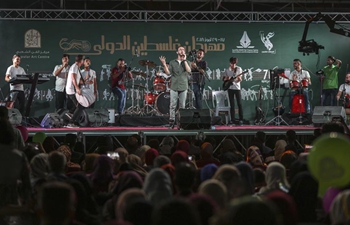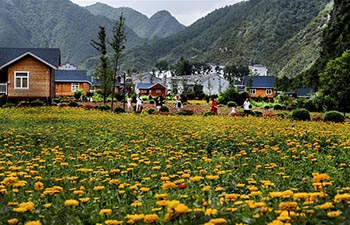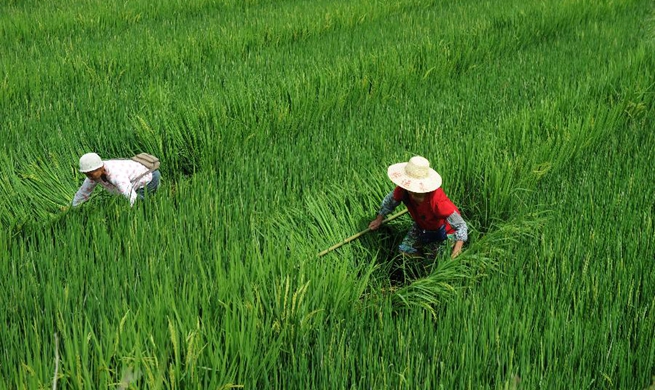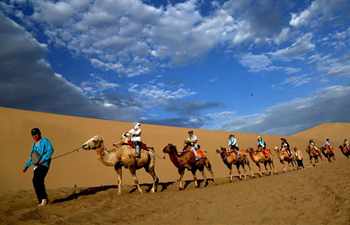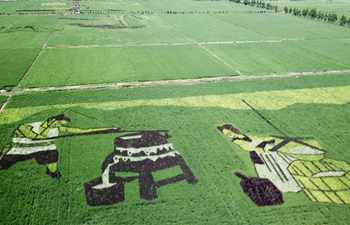BERLIN, July 30 (Xinhua) -- As German farmers lament large deficits in harvests due to particularly hot and dry summer, the German Farmers' Association on Monday asked for 1 billion euros (1.17 billion U.S. dollars) in governmental aids to make up for the losses.
According to president of the German Farmers' Association Joachim Rukwied, the lengthy periods of drought in Germany this summer could force many farmers into bankruptcy.
Rukwied called on politicians to provide financial support to affected farms, adding "One billion euros would be desirable to compensate for the losses." Farms whose yields are more than 30 percent below the average of recent years should receive direct aid.
German Agriculture Minister Julia Kloeckner said she was "very concerned about the effects of the drought, from which many farmers, especially in northern and eastern Germany, are suffering".
According to Kloeckner, the overall situation is alarming. "There are signs of lower grain yields, severe drought damage to potatoes, maize and sugar beet." Many cattle farmers were in need of care for their animals because there was no grass to feed them.
Representatives of the German federal and state governments will discuss the consequences of the heatwave on Tuesday.
If harvest losses are as high as predicted, some foods could become more expensive. Dairy farmers are demanding significantly higher prices for milk as volume of animal feed has decreased.
A decision on whether aid would be paid could only be made after harvesting season is over at the end of August, Kloeckner said.
"The first step must be to declare a state of emergency and thus create the legal basis. In a second step, the federal and state governments must provide a budget," Rukwied explained.
Germany's conservative CDU/CSU parliamentary group responsible for agriculture is in favor of financial support while the Social Democrats (SPD) were against aid for farmers as an economic precedent.
"Modern agriculture sees itself as an entrepreneur in our country," said Rainer Spiering, spokesperson for agricultural policy for the SPD faction.
Like any enterprise, it is thus exposed to risks, Spiering said. "If we provide support for agriculture, we will have to help other small and medium-sized enterprises, which are regarded as the cornerstones of our economy, in the same way," the SPD politician said.
Instead of making short-term aid available, politicians must invest in a future-oriented agriculture strategy, Spiering suggested.
To combat dry spells like this in the futures, Joachim Rukwied calls for a tax-free "risk equalization reserve" with which farmers could make provisions for difficult years.
"It is imperative that Germany has stable rural areas with stable farms," said Rukwied. Losses of 50 to 70 percent threatened the existence of many farmers.

